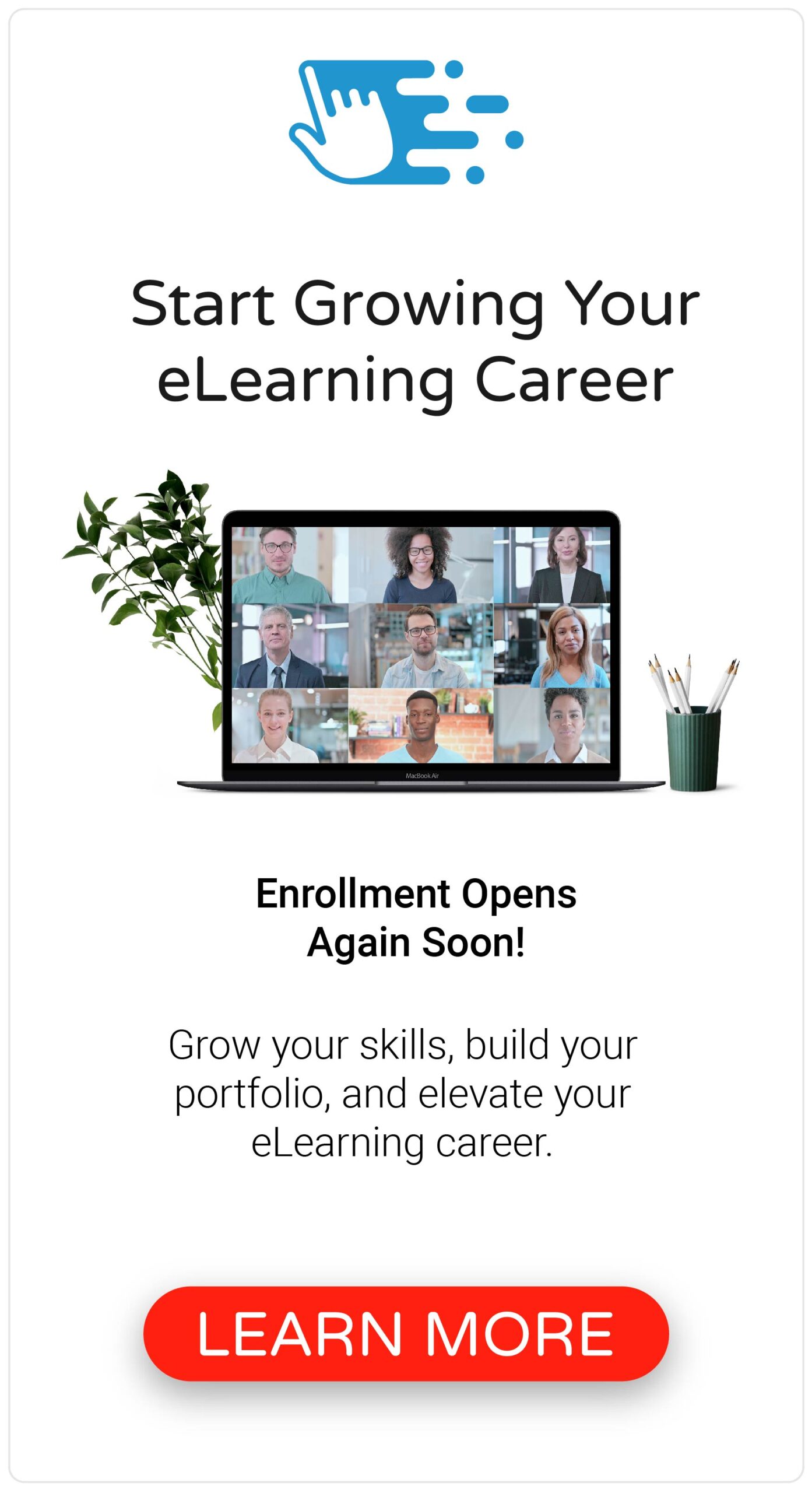If I were a betting man, I’d bet that managing eLearning review cycles with your subject matter experts has given you a headache on more than one occasion. Am I right? Well, of course, I am! I know, because I’ve experienced headaches caused by eLearning review cycles more times than I’d like to admit!
The design and development of an eLearning course depends on a smooth collaboration between you and your subject matter experts. The real test of this collaboration occurs during each of your eLearning review cycles.
Your subject matter experts must understand the importance of getting their feedback during the eLearning development process. To help you with this, here are four tips for managing your eLearning review cycles.
Explain the eLearning Development Process

Before you even think about handing off a storyboard, prototype, or draft of the course to your subject matter experts to review, they must understand the eLearning development process. Although it’s easy to assume your subject matter experts know how a storyboard works or why it’s a good idea to develop a prototype, more often than not, the eLearning development process is a foreign concept to them.
The initial kickoff meeting is an excellent time to educate your subject matter experts about the eLearning development process. Explain each phase of the process and what they can expect from you during those times. Give your subject matter experts the opportunity to ask questions and explain any terms they may not understand.
Explaining the eLearning development process ensures you and your subject matter experts are working with a shared understanding.
Identify Who is Reviewing the Course

Have you ever come close to finishing the development of an eLearning course, and at the last minute, your subject matter experts decide to involve a few additional people in the review process? When this happens, you know how stressful it can be! Even the smallest change can result in hours of rework.
I’ve always believed that designing an eLearning course is a lot like building a house: the closer you get to completion, the harder it is to make changes. For example, let’s say you’re building your dream home. The foundation has been poured, the walls are up, and the finishing touches are being added. At the last minute, you decide to change your mind about the location of the kitchen. At this point in the construction process, how much work and time will it take to move the kitchen? The answer: a lot!
Managing your eLearning review cycles is all about managing expectations. Take the time at the beginning of the project to identify all the individuals responsible for reviewing the course and document them in your eLearning Project Plan.
Set Clear Deadlines

Because your subject matter experts are likely new to the eLearning development process, they may not fully understand how much you depend on them. Oftentimes, subject matter experts will assume their role is to simply tell you what they want and wait for you to create it. They may not realize the need for them to review the development of the course at each stage, including the storyboard, prototype, course beta, etc.
After you’ve taken the time to explain the development process, take a moment to set clear deadlines for the eLearning review cycles. As I’ve explained before, this is a critical step when properly scoping your eLearning projects. Make sure your subject matter experts understand these dates and can commit to them. If not, adjust appropriately. Finally, document these dates in your eLearning project schedule (or by using a dedicated eLearning project management tool) and share it with your subject matter experts. Make sure your subject matter experts know how delays providing feedback can cause delays throughout the entire project.
Specify How & What to Review

My final tip for managing your eLearning review cycles is to educate your subject matter experts on how and what to review. To get what you need from your subject matter experts, guide them through the various eLearning review cycles. Don’t assume your subject matter experts know the difference between reviewing a storyboard, a prototype, or course beta. Not taking the time to do this can be a recipe for endless review cycles and scope creep.
Because you need different types of feedback during each review cycle, it sometimes helps to provide your subject matter experts a little guidance:
When reviewing the storyboard, focus on content accuracy and organization.
- What content is missing?
- What content needs to be removed?
- What content needs to change?
When reviewing the prototype, focus on course appearance and navigation.
- Is the course easy and intuitive to navigate?
- Do any navigation restrictions need to be added?
- Does anything with the look and feel of the course need to change?
When reviewing the course beta, focus on how the course content is presented.
- Does the flow of the course make sense?
- Is the course too short or too long?
- Does the course meet the stated learning objectives?
When reviewing the final course, focus on the finishing touches.
- Are there any spelling or grammar errors?
- Are there any outstanding glitches or bugs?
The Bottom Line
Managing your eLearning review cycles doesn’t have to be a headache-inducing process! Sometimes, all it takes is some guidance on your end to ensure your subject matter experts are reviewing what you need them to review.
If you’d like to learn more about managing your eLearning projects, check out this post.
What other tips can you share about managing eLearning review cycles? Share them by commenting below!








